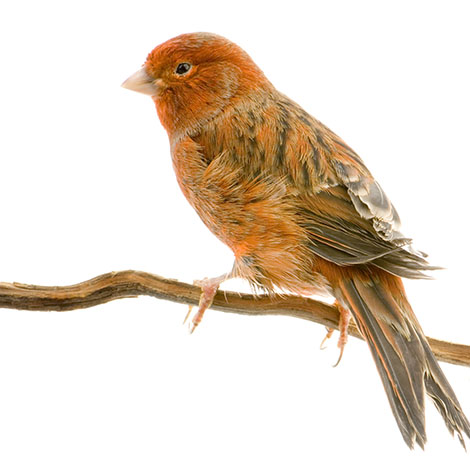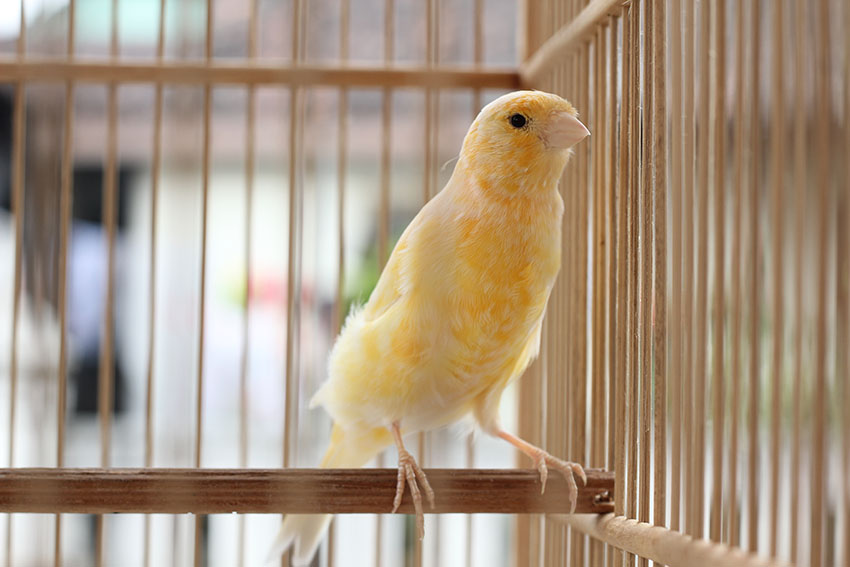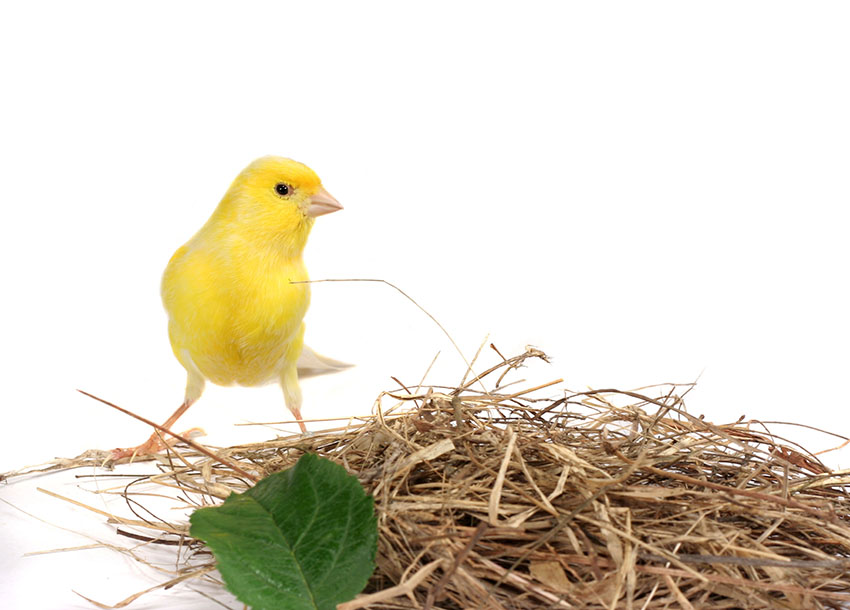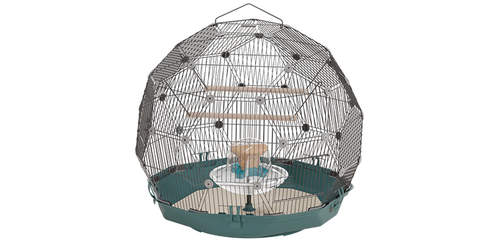As one of the defining features of birds, it is unsurprising that feathers can be the source of health problems. The conditions listed below should not be confused with moulting, which is a natural and necessary part of a bird’s lifecycle.

A Canary's feathers are an outward symbol of its health
Acariasis
Finches with this condition will scratch themselves constantly. The feathers will shed a kind of dandruff, and will lose their usual sheen. In extreme cases the birds will develop bald patches as a result of over-zealous scratching. The cause is mites, or lice (see Mites, in the Parasites section, above).
Bleeding
When a finch is growing new feathers after moulting, or when fledglings are producing their first adult plumage, feather bleeding can occur. A new ‘pin’ feather contains blood vessels, without which the full feather would not be able to grow. If these are damaged during the early days, they will bleed like any other wound. The pin feathers on the wings and tail, being the largest, bleed the most if damaged. Once spotted, the bleeding must be addressed at once. The bird must be caught, and the broken end of the feather must be held tightly for ten minutes. Be careful not to squeeze the bird itself! When bleeding has stopped, arrange a trip to the vet to have the broken pin feather removed.
Cysts
Feather cysts occur when a feather fails to break through the skin. It will continue to grow beneath the surface, producing a lump on the finch’s skin. The primary wing feathers are the most commonly affected ones. These cysts need surgical intervention.
Feathers Falling Out
Abnormally heavy feather loss could be down to parasites, self-plucking, or a feather virus or disease.
Finches Plucking Feathers
Any finch that plucks itself is unwell, but it is not always clear which particular ailment is to blame. It could be parasites, an allergy, low air humidity, lack of fresh air, stress, boredom, mating hormones, liver disease, cancer, bacterial or fungal infection, malnutrition, heavy metal poisoning, or simply a bad habit. Here are some tips for getting to the bottom of the issue:
- Study your birds to see if you can spot a pattern or trigger. Does the finch pluck when angry, bored, or stressed? Is another bird or object involved in the scenario that leads to a bout of plucking? Does it happen after he’s eaten? Is he fine when you’re around – i.e. does he pluck when he’s lonely?
- Assess the light, air and humidity situation. Is the finch getting a 50/50 balance of light and dark through the 24 hour day? Can you do something about his centrally-heated, moisture-free environment to dampen things down a bit? Does moving the cage to a different location help?
- Swap the perches and cage accessories around to liven up the environment a bit and offset boredom. Introduce some new, interestingly-shaped natural wooden perches.
- Does the finch need a bath? A simple case of itchy, dry, grubby skin could be the issue. A wide-nozzled spray (not a fine mist one) will get him wet and washing. Don’t overdo it, though, and stop if the bird flaps around in a panic. The shower should induce his preening instincts, rather than his plucking ones.
- Check your birds’ diet against the list of good foods given in this guide. Try some new ones, to see if you can plug a difficult-to-pinpoint nutritional gap.
- Are you handling the bird (e.g. a Canary or Zebra finch) too much, causing stress?

Keep the bird's environment stimulating
Finches Plucking Each Other’s Feathers
If a pet finch is plucking a cage-mate’s feathers, it could be one of two things. The commonest cause is simple aggression. Birds bully with their beaks, and what better way than to painfully pull at a feather? In these cases, either the bully or the victim should be moved to a different cage. The situation often arises if a space is too crowded, so you may need to review your aviary, birdhouse or cage set up.
Another possible reason is nesting. Finches require nesting materials, and if these are in short supply they will resort to plucking from timid birds, or even from their own chicks, if they’re feeling the urge to have another clutch of eggs. Providing the finches with suitable nesting material (see Nesting in the Finch Breeding section of this guide) will solve the problem; but that’s probably not what you want if there are already chicks in the nest. If the finches have a young family, they shouldn’t be stimulated into starting an even younger family.

Nesting Canaries and finches require nesting materials
One solution here is to tie some jute string toys or other ‘fraying’ finch toys in the cage to distract the bird (nearly always the male in these cases). He will pull at the strands without actually separating many of them, and that should defuse his instincts after a day or two. If this doesn’t work, the cock finch will need removing from the cage. The hen will be perfectly able to raise the chicks alone.




Comments
Hilton, 3 May 2024
My Finch is plucking the feathers from around one of his legs. It is completely bold no. What can I do to address the problem ?
Katha, 18 July 2023
My Zebra Finch suddenly farted loosing feathers today. But, IT GREW BACK IN TWO HOURS!
Palangă, 16 September 2022
My zebra finch is bathing almost every day ( at lest 4 day a week) he love water and use to be VERY clean ( snow white) but now even If he is bathing like always he's feathers, especialy in back and tail are dirty grey and this evening he can't fly anymore. I don't fiind this syntoms anywere . PLEASE HELP . Thanks in advance!
Azaan, 27 March 2022
my strawberry finch is losing wing and tail feathers what should i do
Neha, 4 February 2020
My Java Sparrow female one, is having/developing a round reddish boil like thing just at the starting point of tail at the upper surface side.. Kindly tell me what should I do? I have noticed this today morning.